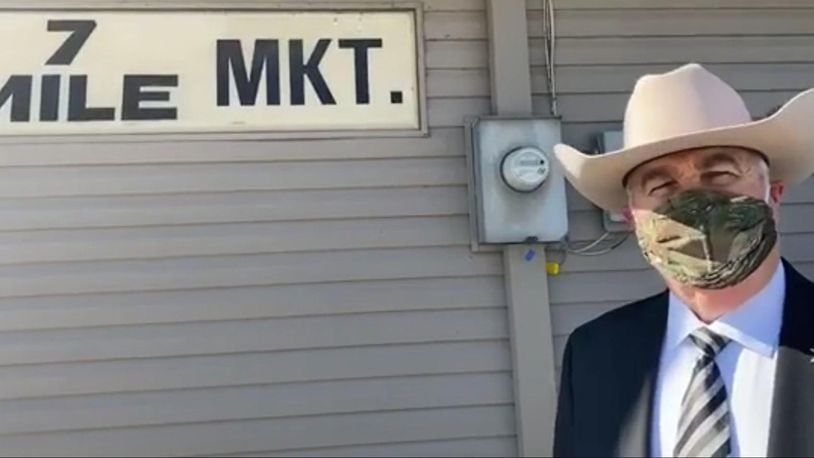Mayor Nan Whaley said the following:
“I know, including myself, that no one is excited about wearing a mask. I know that wearing a mask is uncomfortable. I know that unfortunately, wearing a mask has become a political flash point … But I also know that masks save lives. Masks are incredibly effective at reducing the spread of this virus.”
Due to higher risk of coronavirus spread, Gov. Mike DeWine last week announced new mask requirements in Butler, Montgomery and five other counties.
Butler County Sheriff Richard Jones responded during a press conference posted on Facebook:
Butler County sheriff: ‘We are not the mask police’
“I am not the mask police. I am not going to enforce any mask wearing. That is not my responsibility, it is not my job. People should be able to make that choice for themselves…
I believe as the sheriff in Butler County, here in Ohio, the economy is starting to try to get back to where it was. You can’t go to restaurants. At one time, you were looked down on if you tried to go to church and the churches were closed. It’s totally out of control. It should be left up to the individual if they want to wear a mask. If someone’s sick, I can understand the mask wearing. But for all of us to have to have your temperature taken, to have to wear a mask. Where is it going to stop?”
Recently on Facebook, state Rep. Nino Vitale, R-Urbana, cited statements against mask wearing reportedly made by Denis Rancourt, a former University of Ottawaphysics professor.
Vitale, who earlier this year said he refuses to wear a mask because he says his face is in the image of God, made the the following observations:
“So, they are telling us, you can use anything as a mask. Why? Because it is not about safety, it is about compliance.
Do people really think putting a cotton T-shirt over their faces will prevent the spread of a virus? ”
LETTERS FROM OUR READERS
WEARING MASK MAKES SCIENTIFIC SENSE
Godwin Agaba of Trotwood
I am fully and consciously in favor of wearing masks and masks being mandatory in public.
The evidence is clear that wearing masks has a number of benefits.
Perhaps most important is that masks stem the spread of infectious disease. This is based in scientific reasoning.
Masks prevent the spread of disease causing agents from one person to another. This is true for COVID-19 and other kinds of flu.
When one wears a mask, in case he or she is infected, droplets containing the causative virus are trapped within the mask; they do not spread into the air to infect others.
Since transmission can be pre-symptomatic and asymptomatic, and it is not possible to look at a person and know that they carry the disease, masks provide a shield against the unseen.
Masks have saved lives of millions of people who would have acquired the fast-spreading coronavirus.
MASK REQUIREMENT LIKE OTHER SAFETY LAWS
Pamela Gregg of Xenia
In Ohio, you may not smoke in public places, you may not get behind the wheel of an automobile if your blood alcohol level exceeds the legal limit for driving, and you must wear a seat belt when driving an automobile.
There are countless laws in place that may violate a person’s freedom of choice, but are designed to minimize risk to self and others.
These laws were created because, without them, people may choose the risky behavior. But if a person chooses to ignore the law and drive drunk, for example, and is involved in an accident that hurts someone, the injured party will not in turn injure a few more people, who would themselves each injure others, and so on; the injury would be confined to the single accident.
How then, in good conscience, can we not create a mandate around the injury that “keeps on giving?”
About the Author
